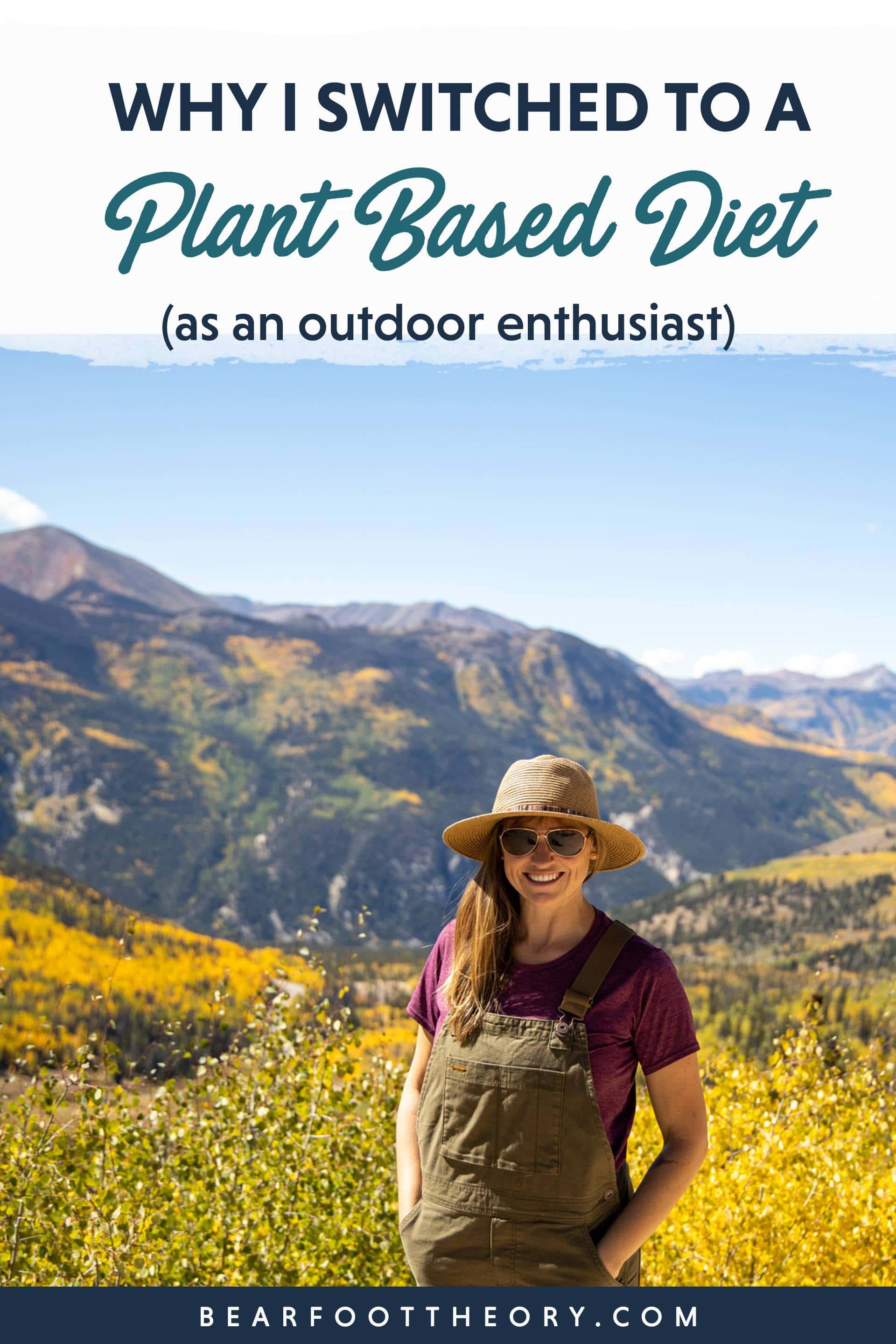Why I Switched to a Plant-Based Diet (as an Outdoor Enthusiast)
Thinking about going vegan or vegetarian? I’m an outdoor enthusiast & I recently switched to a plant-based diet. Learn why & about the benefits I’ve experienced.
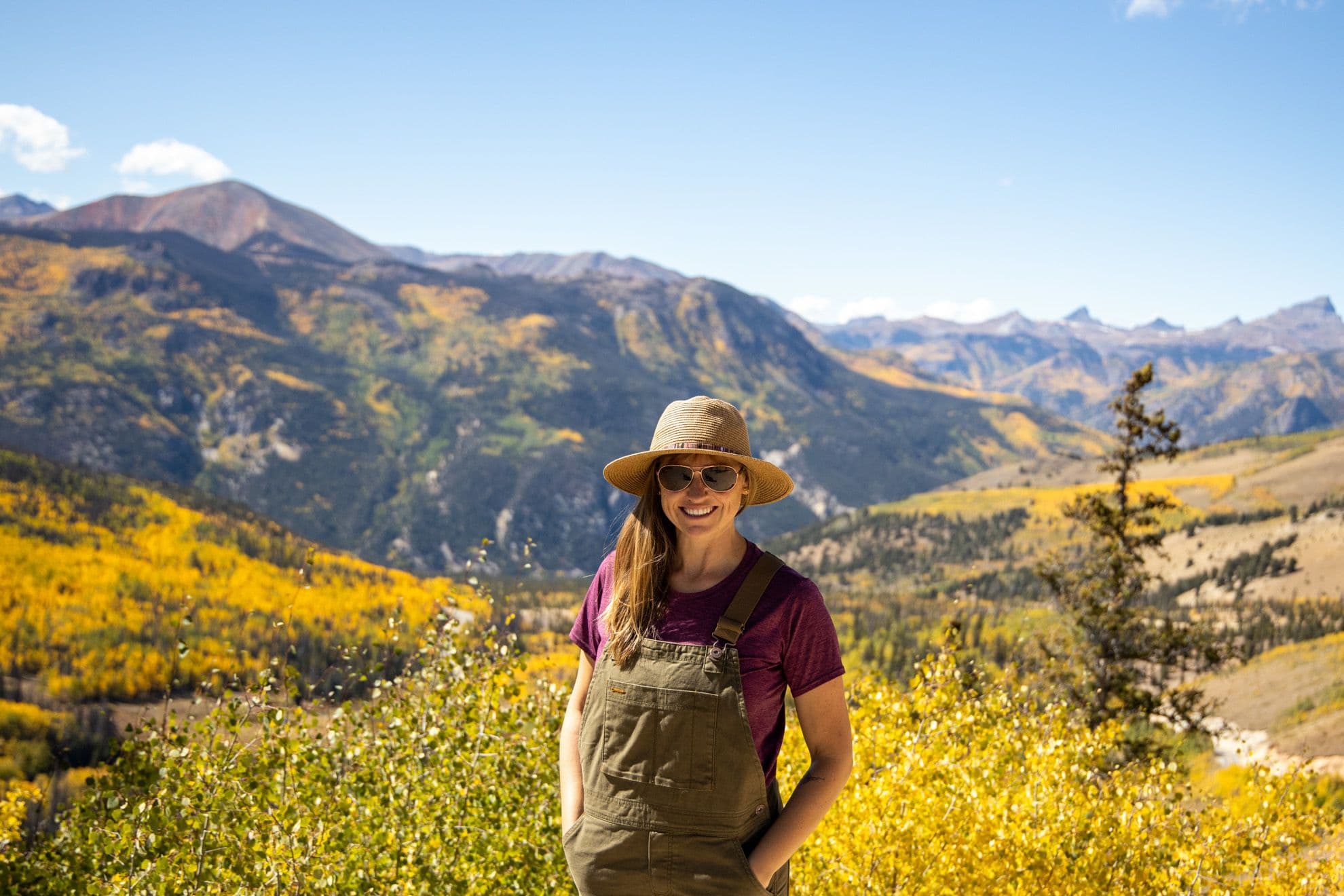
Back in college (circa 2002), I read the book Omnivore’s Dilemma by Michael Pollan, and it was the first time I ever really asked “where does my food come from?” I was so turned off about factory farming based on what I read in that book, I decided to give up meat.
While vegetarism can have many health benefits when done right, I was about as unhealthy of a vegetarian as you could be. My go-tos in my college cafeteria were white rice with butter, bagels, fro-yo, noodles with tomato sauce, and cheese pizza. Oh and Busch Light tall boys. I was a vegetarian that literally didn’t eat vegetables and sustained off of bread, cheese, and beer. A golden standard of health.
A year after college graduation, I had a vivid dream about a cheeseburger (probably because my body craved protein, and I was doing it all wrong), and my vegetarianism went right out the window.
So a meat eater I was. I kinda went crazy, chowing down on steaks, bacon, and anything else I could get my greasy little hands on.
After college, I struggled with my weight, ending up 40 pounds heavier than I currently am at my highest. Now that I’m alcohol-free (that’s for another blog post), I know that some of my weight issues were due to booze, but I also had fairly gluttonous eating habits. I’ve never had a ton of self-control with food, and I’ve always been of the mindset that if I was going to eat out, I might as well order something as tasty and delectable as possible, amiright?
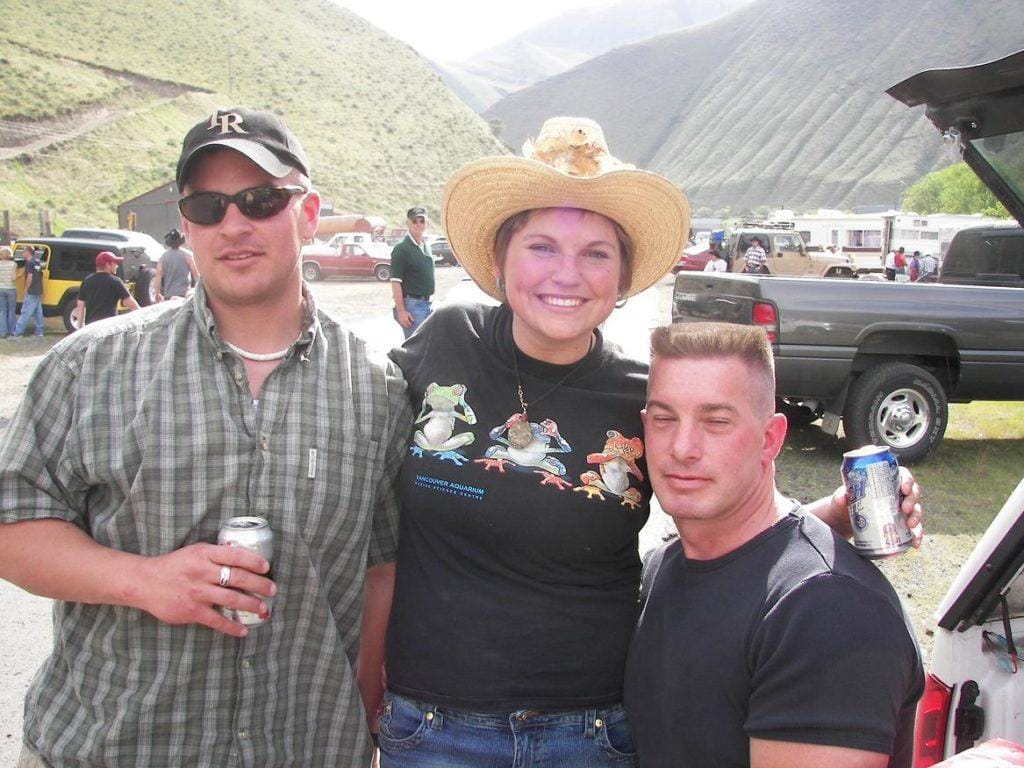
Fast forward to 2010, I was in grad school at UC Santa Barbara working on my masters in Environmental Management. My focus was sustainable fisheries policy, and I learned what bad shape our oceans are in. According to the UN Food and Agriculture Organization, a third of the world’s commercial fish stocks are being caught at biologically unsustainable levels, while 90% are fully exploited and can’t handle any additional fishing pressure without negative impacts to the population.
Some species, like the popular bluefin tuna (also known as fatty tuna, maguro, and toro in sushi restaurants), are completely decimated with only 3% of the entire population left across the world’s oceans.
It was during this time that I started to also be more aware of the effects of industrialized livestock production on the environment. I learned that the average burger patty requires about 530 gallons of water to produce (Source: World Economic Forum), when you include the water required to grow the food that cows eat. In fact, some researchers calculate that animal agriculture consumes 27% of total human water usage globally (Source: Science Direct).
As far as climate change goes, global livestock production accounts for between 14.5 percent and 18 percent of human-induced greenhouse gas emissions (Source: New York Times and UC Davis).
I could go on with the science, but the point is, I knew switching to plant-based eating was better for the planet. I also knew the reality of how the animals are treated on factory farms (where a majority of our meat comes from) and the poor conditions they live in. I ignored the facts as I blissfully scarfed down a burger or a side of sausage with breakfast. Instead of thinking about the big picture, I thought about my taste buds and the immediate gratification.
Ok, so fast forward again. Now it’s 2019, and I’m 35 years old. Luckily I managed to get my weight under control, but my choices were starting to feel heavy on my conscious. I’ve been blogging since 2014, and I consider myself an environmental advocate and huge outdoor enthusiast. I talk about Leave No Trace and environmental issues on my channels, and my goal with Bearfoot Theory is to foster a community of mindful and responsible outdoor enthusiasts.
But honestly, I felt like a hypocrite. I drive a big van (which we’ve shared some thoughts about sustainability here), and I was eating meat daily. At the same time, I’m also a proponent of science. It angers me when I see our leaders not following the science when it comes to climate change and other environmental problems, so why wasn’t I following the science in my personal life?
I had thought about trying a plant-based diet, but my partner Ryan is a Type 1 Diabetic (who happens to do all of our cooking), so I just didn’t see how it could work. As a diabetic, Ryan has always been taught, eat lots of meat and high protein foods and avoid carbs because foods like pasta, rice, and fruit make your blood sugar spike. He’s also an amazing chef and cooking a big juicy ribeye was one of his favorite things to prepare. So going vegetarian seemed like a long shot.
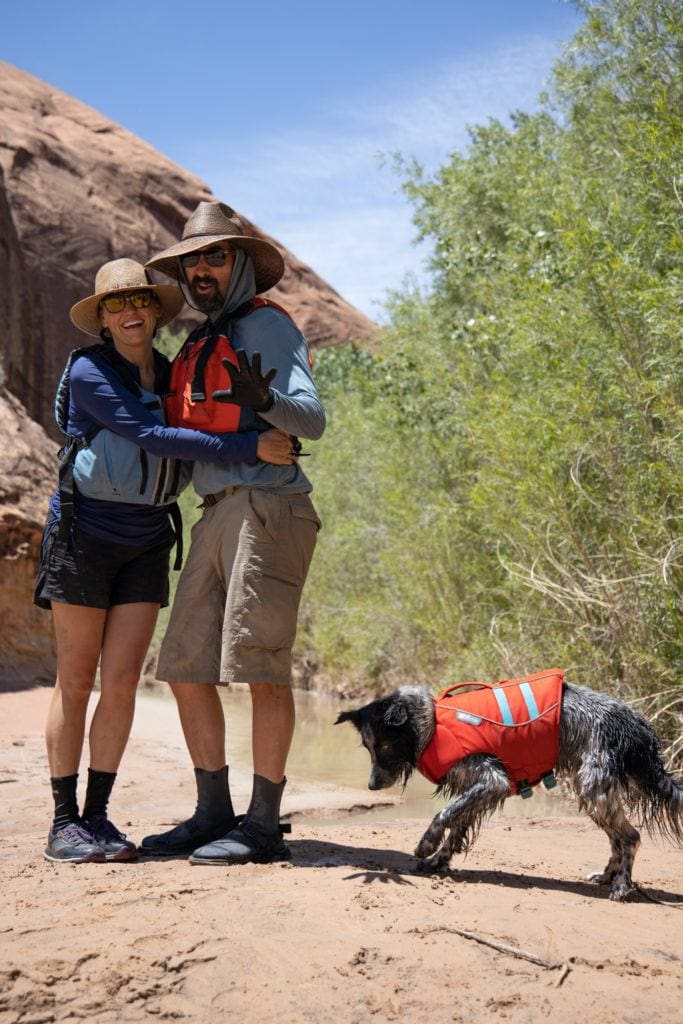
At the same time, Ryan (like many diabetics) was on cholesterol meds to protect his heart. Last year, I was also surprised to find out that my cholesterol was higher than it should be. Guess it was all that breakfast sausage. Finding that out gave me a little nudge to start making some changes.
We first started to experiment a little bit with vegetarian food last summer in the van. We found it much easier and cleaner to cook tofu in the van than raw chicken. Having a salmonella playground in such a small space (where you also brush your teeth) just seemed gross. So we started to make a lot of quick tofu stir-fries, the occasional veggie burger, and veggie pastas.
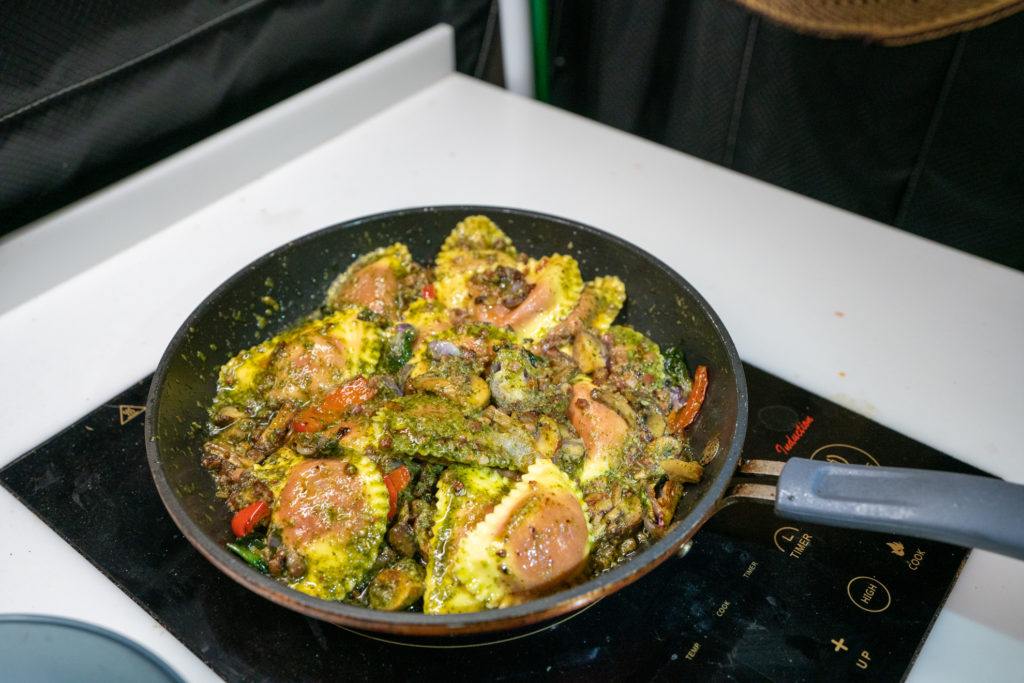
Then it was the night before Thanksgiving, and we were at my parent’s house flipping through Netflix when we came across the movie Gamechangers. This documentary is about elite athletes around the world who have adopted a plant-based diet and how it has impacted their performance. The film features the world’s strongest man and Scott Jurek, named one of the greatest runners of all time, who are both vegan. With Ryan being a former ski-racer and myself a lover of challenging trails, this message really hit home. The movie was so convincing that Ryan and I decided that we’d be passing on the turkey at Thanksgiving dinner and that we were done with meat altogether.
Now, there are plenty of arguments that the facts presented in Gamechangers were one-sided. And the truth about these documentaries is that you can easily find a study that backs up or refutes just about anything in any documentary. You really have to dig and see who funded the study and what their motives are. So for me, I wasn’t going to just take the points made in the movie for face value. This was going to be a personal experiment, as everyone’s body is different. I was going to go meat-free for a while, and if I felt better, I’d have my answer.
Ryan is on a continuous blood glucose monitor which allows him to see his blood sugar levels throughout the day. The first thing we noticed is that his blood sugars seemed a lot more stable, staying within his target range. It almost didn’t make sense. In the past, he had struggled with his blood sugars yo-yo-ing throughout the day, spiking really high and then dropping dangerously low. This is especially scary when it happens in the middle of the night. I figured without meat, we’d be consuming more carbs, and his blood sugars would be totally out of whack. But it turns out, it’s been quite the opposite. He’s no longer seeing so many dramatic spikes after eating. His doctor was really impressed with the results of his recent blood work, with lower cholesterol and lower A1Cs, which is a measure of your average blood glucose levels.
As for me, I’m now on my 5th month of eating 98% vegan and I have to say I feel better than I’ve felt in my entire adult life – leaner, lighter, and way more energetic. Since I’ve switched to a plant-based diet, I don’t feel so heavy after eating a big meal, and when I’m hiking and exercising, it just feels easier.
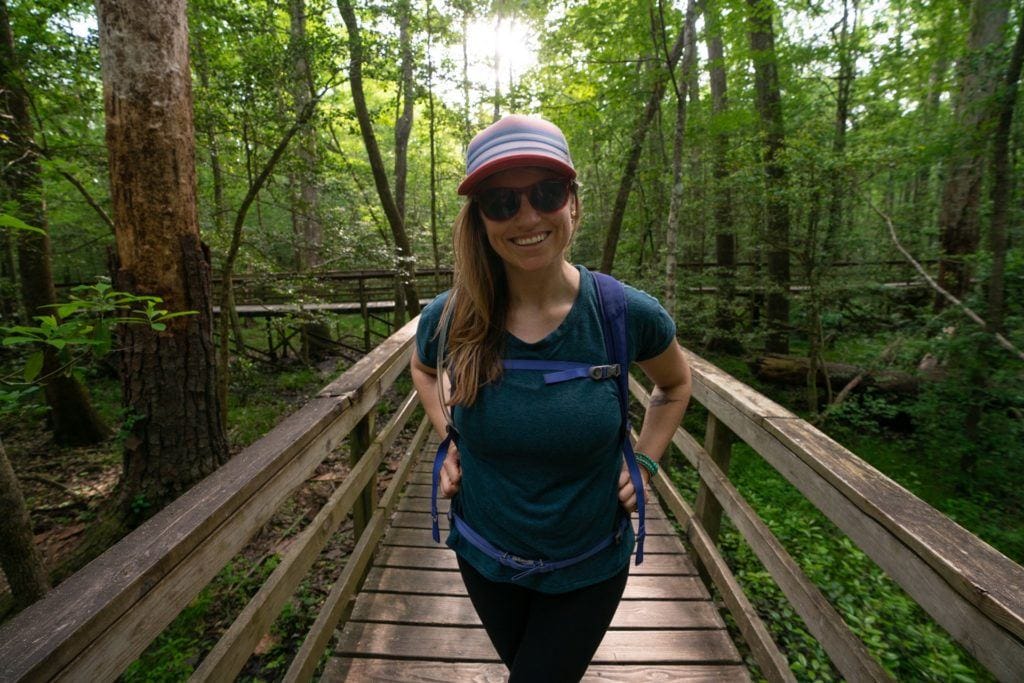
Of course, my diet now is very different than the 20-year old vegetarian me. There are so many more resources (like vegan cooking blogs) and tasty ingredients than there used to be. Plus, I don’t have those Busch Lite tall boys to distract me 🙂
Now we eat a lot of GMO-free tofu, beans, chickpea pasta, whole grains, and tons of veggies. I’m off meat completely and have pretty much given up cheese and dairy altogether. Depending on how creative you want to get, it can take more effort to make a delicious meal, but it’s also a whole lot more satisfying knowing what I’m putting in my body is so healthy. Plus it can be really fun getting creative and seeing what you can come up with in the kitchen. In another blog post, I’ll share more advice on how to make sure you’re getting the fuel you need to keep up with your active lifestyle, but I’ll tell you now, it’s not that hard if you pay attention.
The benefits of switching to a plant-based diet haven’t stopped with my health though. I’m also a lot happier. For all of these years, I’ve eaten meat being fully aware of the impacts, yet Leave No Trace, believing in science, and minimizing my impact on the environment when I’m outdoors has been one of my top priorities. I also love animals. So why didn’t I apply those same core values to my diet, which is an area where our individual choices have such an enormous impact?
As I go deeper into my new lifestyle, the environmental and animal rights reasons to eat plant-based are just as important to me as why I initially started for my health. And now, I’m realizing they are all intertwined. I want to live my life in a way that’s in alignment with my values and does the least harm possible. I don’t want to inflict pain on animals, and I want to follow the science and be proud of the choices I make when it comes to preserving the health of the planet. Living this way makes me feel happier, and happier means a much healthier me.
For these reasons (and as long as I continue to feel this good), I don’t think I’ll go back to eating meat.
Now if you’re a meat-eater, please know that I’m not judging your choices or telling you that I’m right and you’re wrong. Eating strictly vegan isn’t for everyone, and you have to do what feels right to do. However, even cutting back on your meat consumption, eating vegetarian a few days a week, or choosing to support small local meat producers who are trying to do the right thing over factory farms can make a difference.
If you’ve been thinking about trying a plant-based diet, I hope this blog post inspires you to give it a try. To help you with this transition, I’m working on a blog post with some tips to help get you started, so stay tuned!

